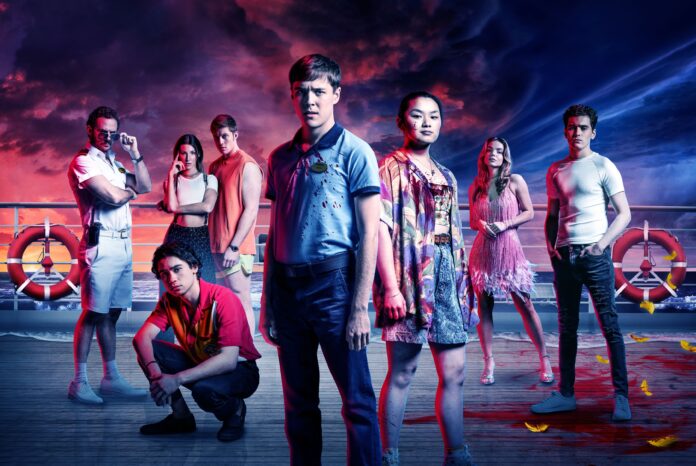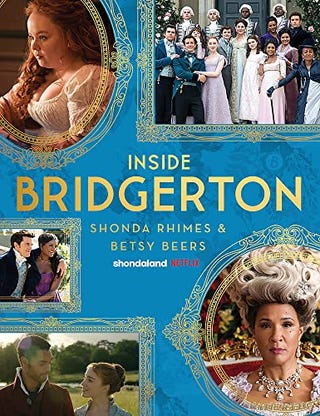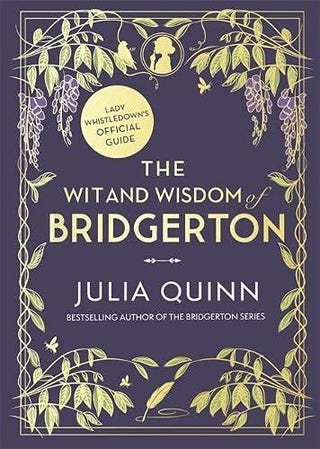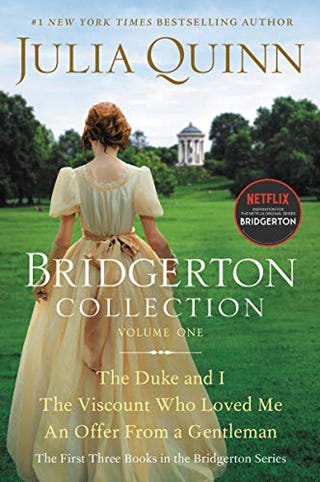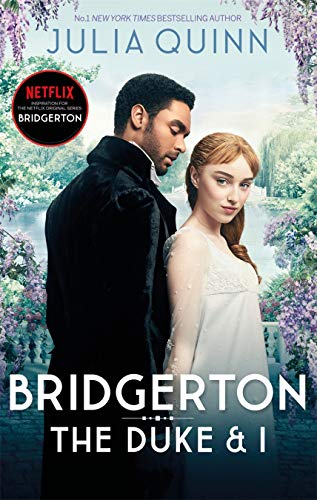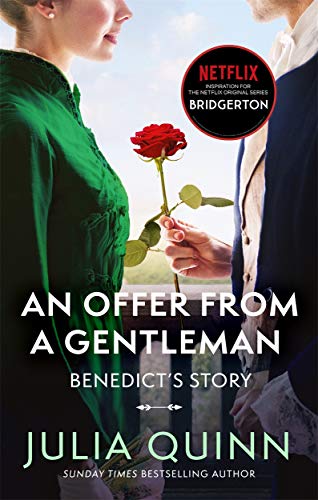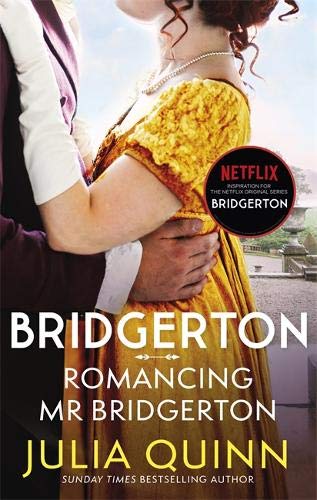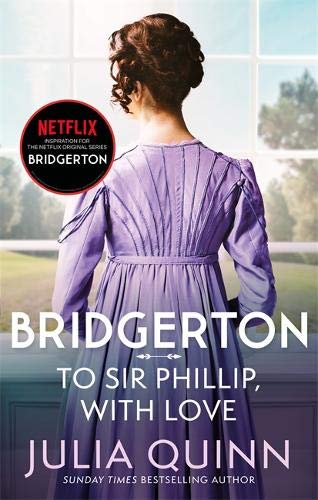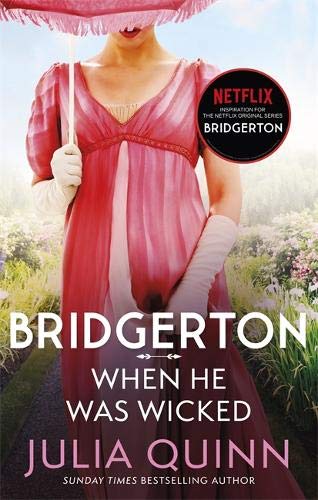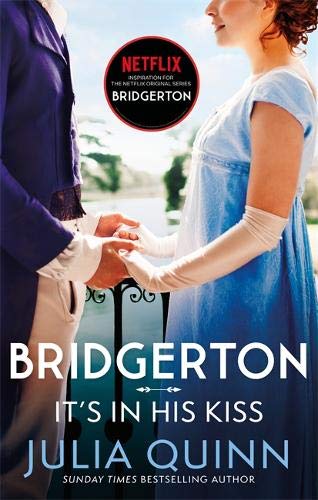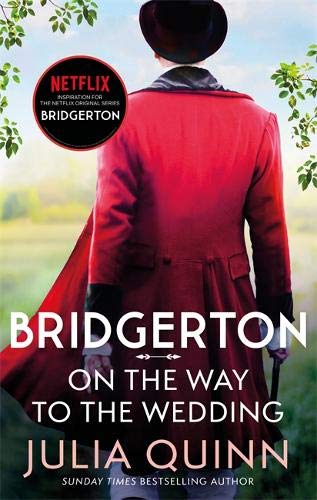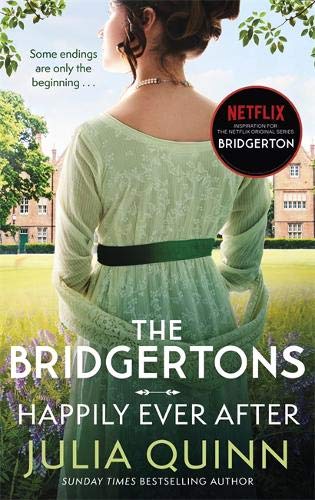Rainbow Crew is an ongoing interview series that celebrates the best LGBTQ+ representation on screen. Each instalment showcases talent working on both sides of the camera, including queer creatives and allies to the community.
Next up, we’re speaking to Wreck star James Phoon about his new BBC Three show.
There’s often a strict running order when it comes to who will die first in a horror film. Unfortunately, tradition (and bigotry) dictate that characters from a marginalised group will usually be the first to go. But what happens when the majority of your cast is queer and/or a person of colour? What then?
That’s essentially the premise of Wreck, BBC Three’s new comedy horror series. Well, that, and there’s a murderer running around in a giant duck costume. And all the characters are trapped together with said murderer on a cruise ship with no help in sight.
Wreck is many, many things all at once, but creator Ryan J Brown manages to pull it all together nonetheless. And that’s exactly what drew actor James Phoon to the show.
“As soon as I read it, it was just like nothing else I had ever been sent before,” James tells us. “It’s so contemporary. The characters are so dynamic.”
Phoon admits that Wreck could have turned out to be “a total mess” in the wrong hands. “But the creatives that we were working with, and the crew, everyone was so passionate about this project. They really honed it in a way that made sense.”
James plays Hamish, one of the most “outlandish” characters in a show that’s full of them. And he does so in a way that revels in gay stereotypes, all while subverting their position within the horror genre.
Digital Spy caught up with James ahead of his new role in Bridgerton to discuss Wreck and how Hamish navigates this deadly queer space.
Wreck is such a unique beast. There are plenty of scary slasher moments, but then you suddenly wind up with ‘The Thong Song’ being played at someone’s funeral. How do you navigate those changes in tone?
It’s there in the writing. Ryan did such a good job of balancing those two, because it could have either been just a comedy, or just a horror. I think it’s a really fine line to try and nail that, especially in the first episode when you’ve got Pippa being chased by Quacky down the side of the ship. It kind of feels scary, but then also you’re laughing, and there’s boots squeaking on the floor.
I think Chris [Baugh], our director, was really good at that, actually. He gave us space to just play with our characters, and make different choices, and do different versions. He was super-excited about seeing what we could bring to the characters, and how we could flesh them out. Which I thought was really cool.
What did you bring to the role specifically?
I think on paper, Hamish is just a bit of a bitch [laughs]. Which he is. He definitely is. But I thought it was just fun to try and see why he was like that. What does he actually want? What is that dynamic between him and Sophia? How does he feel about his friends?
He’s very much like the gay stereotype that we’ve seen on TV quite a lot. He’s very flamboyant. I think on another project, I would have had my reservations about that. But because in this show we have so many queer characters that are so beyond just their label – because there’s so many of us, and that goes with race and gender identity and all of those categories – they’re fully-formed humans that are sort of hitting every point.
Hamish wasn’t the one gay character that had to be the bitchy fashion icon. That’s a part of who he is. But then there’s also a bunch of other queer characters that are so much more than that.
I think that’s what’s cool about having all these characters in one space. They don’t have to be one thing. They don’t have to just be the villain, or just be the bitch. The women don’t have to all be perfect. They’re allowed to just be people in this setting.
That’s what’s so fun about it. It’s not about just their queer identities. It’s not just about their label.
What’s it’s like to star in a horror that operates explicitly within this queer space?
Well, I am a massive wuss [laughs]. I’m so terrified of horror. Whenever I do watch stuff, it gives me the worst nightmares. So it’s funny, actually working on a horror show.
I really liked – I just said it before – the horror and the comedy are sort of mashed up together within that second episode where Jamie’s being chased by the person in the mask, he’s pushing through the fabric, and it’s a game of cat and mouse, and it’s all very tense.
And then they pull back the curtain, and find Hamish making out with someone. Which I thought was really fun.
That was a moment where, in the script, it just said: “Hamish screams.”
Chris was like: “Just shout what you want.”
So I was like: “F**k off, I’m grieving!”
No other character would say that. But I felt like Hamish would. Hamish doesn’t really care about Danny that much. But if he can use it to pull some boy, then why not?
Do you find these kind of kissing scenes awkward or is it just part of the job?
There was a slight, like… “Oh, what’s it going to be like?” Because the person that I was kissing wasn’t a cast member that I knew already. So I didn’t know the guy until the day. But what’s really great – I’m sure you’ve heard from so many people about intimacy coordinators being on these projects.
They’re just so great about setting a framework, and getting everyone on the same page. Once you’re doing a scene, in my experience, everything is sort of fine and people are lovely, there’s never a problem.
But just knowing there’s a person there that’s checking in with you, or that if you did want to say anything, you have a specific person to go to and you know that they’ll be discrete about it. I think that just really helps set the tone.
For me on set, because the guy I was kissing was just in for the day, I think I was very aware it’s probably a hundred times more awkward for him, because at least I knew the crew and the director and all of that. Whereas for him it was a hundred strangers.
Is there a particular moment of LGBTQ+ representation onscreen that’s really resonated with you or changed your life in some way?
There was one – I think it was called Clapham Junction. I remember just being like: my mind was blown that this show was on TV. I’d never seen anything like it. I remember sneakily trying to watch it without anyone knowing that I was watching it. Which is going to be true for a lot of people, still, nowadays.
I know that representation has got better, and I know that the conversation around the community has got better. But a lot of people before coming out, and even after coming out, are still so terrified about what’s going to happen when they finally reveal who they really are.
I think especially right now in the UK with the trans community, who I think are really being left behind and being attacked by a lot of other groups, rather than being supported. Rather than having different marginalised groups come together, they’re often being used as a scapegoat.
What’s really cool about Maya’s character, Rosie, in Wreck it is was written to be specifically trans, and that’s 100% who Rosie is. But actually that’s not her story, and her story is not about queer trauma. She’s on the ship for her own reasons. And, yes, her gender identity and her experiences inform her, and they make her ready to deal with dangerous situations. But that’s not all Rosie is.
I think that’s true for a lot of characters in the show. When it comes to representation, both sides of representation are really important. I think the version that’s really honed in on the experience of whichever minority that is, is really important. It’s important to explore those stories.
This content is imported from Instagram. You may be able to find the same content in another format, or you may be able to find more information, at their web site.
And then the other version is where someone represents a minority, and they’re fully informed by whoever they are. But actually their story is beyond that. In our case, in the case of Hamish and someone that might identify with Hamish, it’s seeing yourself as a gay, mixed, British, East-Asian person that’s on a cruise ship, trying to survive being stabbed by a duck-man-person.
We’re sure Wreck will be that special show for a lot of young queer people watching back home now. But looking ahead, what do you hope to see more of in queer stories on screen?
I think just more stories with queer characters. That’s literally it. Characters who are specifically queer. The story doesn’t have to be about that. The story can be about that. We have all kinds of different dramas and comedies etcetera etcetera etcetera. There’s no reason that these lead characters can’t be part of the queer community. There just really isn’t.
We don’t just exist as people who suffer trauma day in, day out. That’s obviously part of what you go through. But we also go to the shops, and do shopping, and do everything everyone else does.
Honestly, it’s just more representation. But I think people are getting better as well in terms of – whatever the minority it, whether that is being part of the queer community, or whether that is being part of the East-Asian community – I think that people are less tempted to try to fight over the one seat at the table, which is how I think it was for a long time.
Instead it’s about pulling more chairs up to the table, and inviting people to take a seat, which is definitely what Ryan’s done with this show. He’s created this show, and he’s invited all of these different queer experiences into one project, and made space for people like me. I think that’s amazing.
Wreck premieres October 9 at 10pm on BBC Three, and all episodes will be available to watch from that time on BBC iPlayer.
Bridgerton seasons 1-2 are streaming now on Netflix. Season 3 is in production.

